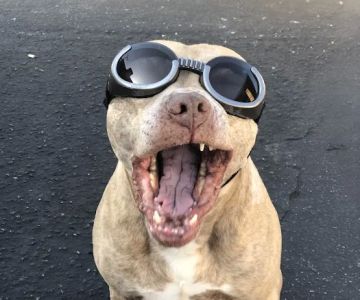How to Train a Dog Not to Bark at Night: A Complete Guide for Pet Owners
- 1. Understanding the Reasons Behind Your Dog's Barking
- 2. Creating a Consistent Bedtime Routine for Your Dog
- 3. Training Techniques to Stop Your Dog from Barking at Night
- 4. When to Seek Professional Help
- 5. Products That Can Help with Dog Training
1. Understanding the Reasons Behind Your Dog's Barking
Before you can successfully train your dog not to bark at night, it's essential to understand why they are barking. Dogs bark for various reasons, including fear, anxiety, boredom, and attention-seeking behavior. Often, nighttime barking is a sign that your dog is feeling anxious, lonely, or uncertain about their surroundings.
For instance, if your dog barks when they hear noises outside, it could be a sign of territorial behavior. Alternatively, if they bark because they're feeling anxious or scared, it could be linked to separation anxiety or lack of socialization. Understanding the cause will help you tailor your training approach effectively.
2. Creating a Consistent Bedtime Routine for Your Dog
One of the most effective ways to prevent your dog from barking at night is by establishing a consistent bedtime routine. Dogs thrive on routine, and knowing what to expect each night can provide them with comfort and security.
Start by setting a specific bedtime for your dog each evening. Before bed, engage in calm, relaxing activities like a short walk or some quiet playtime. This will help your dog expend excess energy and settle down before sleeping. A well-rested dog is less likely to bark excessively at night.

1225 Warren Ave, Downers Grove, IL 60515, USA
See Details3. Training Techniques to Stop Your Dog from Barking at Night
Once you understand why your dog is barking and have established a routine, it's time to focus on training. Here are a few techniques that can help stop nighttime barking:
- Desensitization: Gradually expose your dog to the triggers that cause them to bark. For example, if they bark at outside noises, play recordings of those sounds at a low volume while rewarding your dog for staying calm. Slowly increase the volume over time until your dog becomes desensitized to the sounds.
- Positive Reinforcement: Reward your dog for quiet behavior. Every time they remain quiet during the night, offer praise or a treat. This will encourage them to associate quiet behavior with positive outcomes.
- Ignore the Barking: If your dog barks for attention, avoid rewarding the behavior by giving them attention. Instead, wait for them to stop barking before acknowledging them. Over time, your dog will learn that barking does not result in attention.
4. When to Seek Professional Help
If your dog continues to bark excessively despite your efforts, it may be time to seek help from a professional dog trainer or a veterinarian. Persistent barking can sometimes be a sign of deeper issues such as anxiety or medical problems. A professional can assess the situation and offer tailored advice and solutions that suit your dog's specific needs.
5. Products That Can Help with Dog Training
There are several products on the market that can assist with training your dog to stop barking at night. Here are a few options:
- Anti-Bark Collars: These collars emit a harmless spray or vibration when your dog barks, discouraging the behavior. However, they should be used with caution and only after consulting with a professional.
- White Noise Machines: Playing white noise or calming sounds can help drown out external noises that might trigger your dog's barking at night.
- Comfort Items: Some dogs feel more secure when they have a familiar blanket or toy with them at bedtime. Providing these items can help reduce anxiety and nighttime barking.
For more information on training products, or to get personalized advice, visit Hidden Brook Veterinary.











